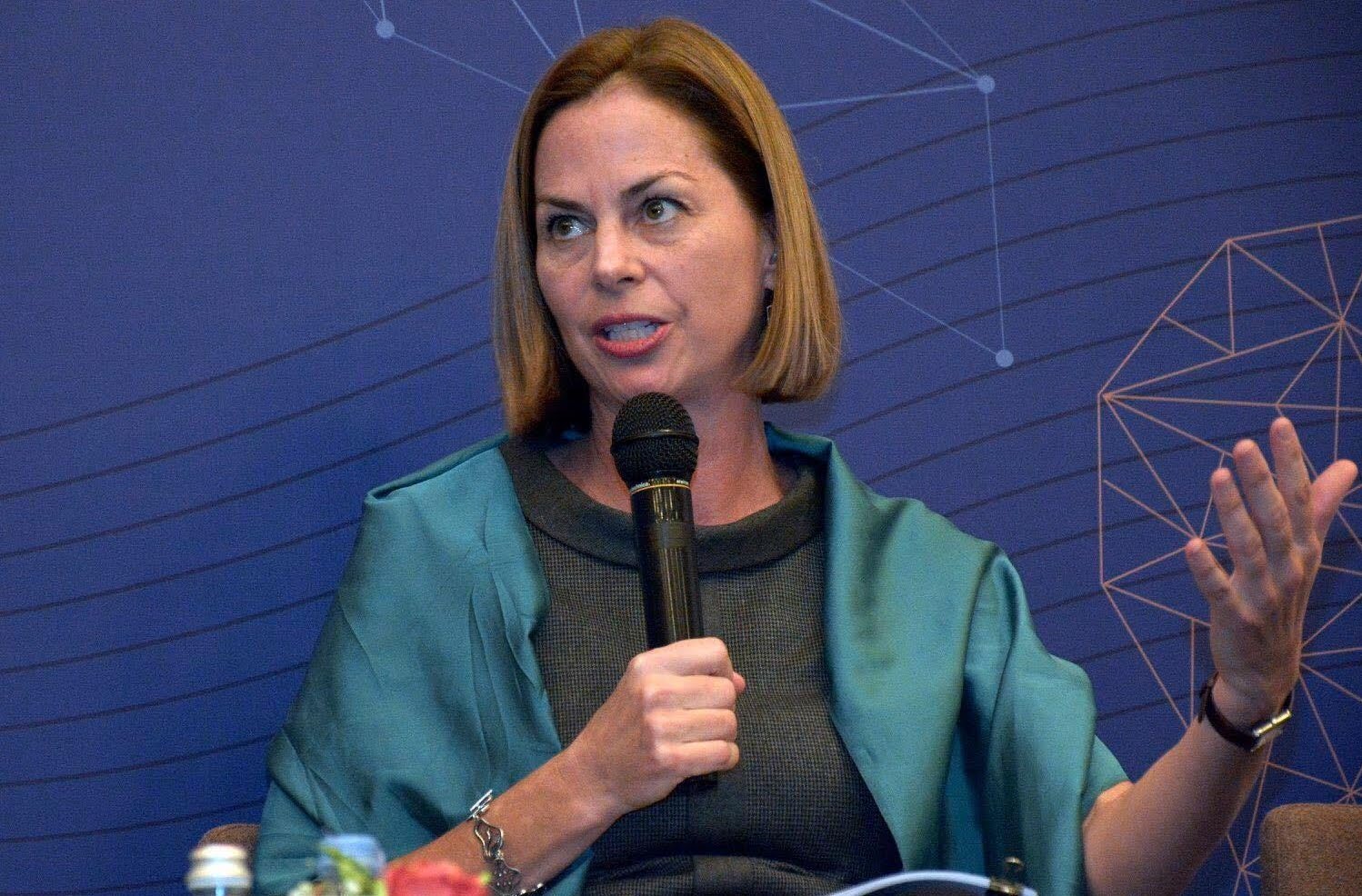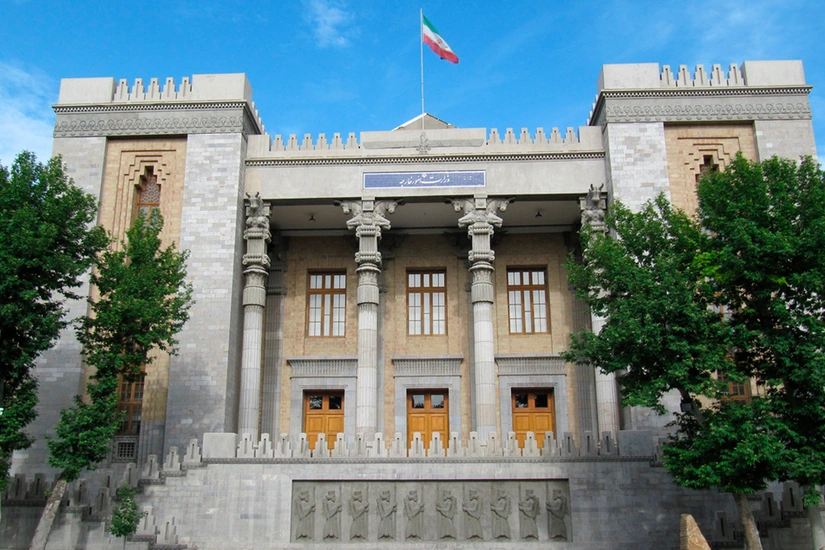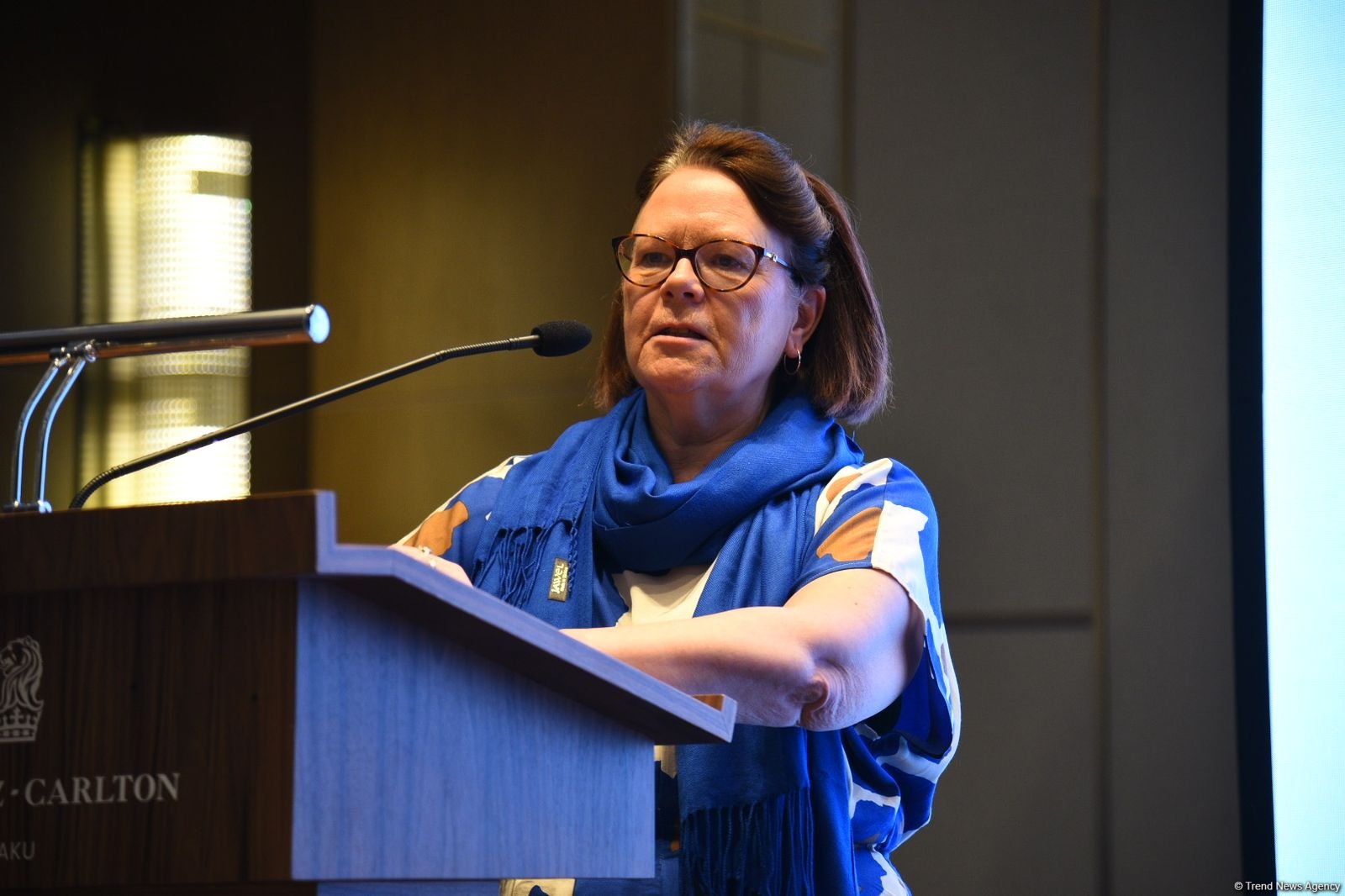Georgia’s greatest asset is its democracy. It is what has earned the country's much-deserved attention and admiration from Western partners. In no small part because of the country’s location in a challenging region. The international community has really looked to Georgia as a beacon of hope. Thus, when democracy is backsliding, it is, of course, disappointing to the country’s partners. I think the agreement is certainly welcomed by Georgia’s friends and partners. But it is not a "free pass".
And any backing away from the agreement will be viewed harshly, "said the Director of the Alliance for Securing Democracy at the German Marshall Fund, Laura Thornton, in an interview with Europe Time. In addition to this issue, in an interview with „Europe Time, " Laura Thornton also said that there is still much work to be done to strengthen Georgia’s democratic institutions and processes and ensure that democracy actually delivers for everyday folks.
ET: In the interview, you mentioned once that holding early voting in Georgia would be a bad precedent for Europe and that instead efforts should be made to reform the electoral and judicial systems. According to the agreement signed on April 19, early voting in 2022 shall be announced in case the "Georgian Dream" receives less than 43% of the valid and proportional votes during the local elections in 2021. What do you think of such a formulation and, in general, do you think that this document will end the crisis?
LT: Thank you so much for this question. What I said in my interview with VOA was that holding new elections when both domestic and international observers found the process credible could indeed set a potentially negative precedent. Reelections must be held only in very rare circumstances where significant disruption and extensive and proven fraud have taken place that would alter the overall outcome, and nonpartisan observers have declared the exercise neither free nor fair. Otherwise, losing parties everywhere could (and do, in fact) make such demands, without merit. (As we have seen, for example, in the U.S. and Myanmar.)
That said, the agreement of April 19 indicates that a significant portion of representatives from both the opposition and ruling parties acknowledge the unique circumstances of the political situation in Georgia and the need for a compromise on the matter of early elections. And I welcome this agreement and congratulate all sides.
Georgian elections have significant flaws. I would argue that the most damaging flaws do not really involve election day but occur prior. In particular, intimidation, abuse of state resources, and the unlevel playing field (financial support). Adjacent to elections is the longstanding problem of political interference (or perception of it) in the judiciary. These are challenges that are difficult to address through legislation and regulation and have colored Georgian elections for years, spanning different governments.
There are some legislative and regulatory fixes that can be implemented, such as the reform of the composition of the EMB, complaints adjudication procedures and interpretation, and the handling of protocols, among others.
However, I’m not sure elections – even after such fixes – would yield a different outcome. The deeper problems I’ve described give an extraordinary incumbency advantage. Take, for example, the fact that half of employed Georgians work for the state. And we’ve seen in Georgia, with a change in government, people losing their jobs. Not just political appointees, but bureaucrats and local officials as well. There is, thus, an incentive to keep your head down and vote for the government. Add to that intimidation, or even just "strong encouragement," that countless state employees—teachers, medical workers, etc.—have described. The point is that even with electoral reform and early elections, the playing field is tilted in a way that makes it challenging—not impossible, as we’ve seen in 2012—to see a political transition in Georgia.
As to the question of whether the document will end the crisis, I guess it depends on how we define the crisis. It is without a doubt a positive development. It seems to indicate that the majority of elected MPs will take their seats in parliament. I also applaud the language about reconfiguring the balance of power within parliament. I worked with the Georgian parliament for years, and the minority’s rights are very limited. Having opposition chairpersonship, I would suggest more robust oversight provisions (with teeth) on budgetary matters. The Georgian legislative branch, however, is quite weak. I hope with some reforms – more legislative drafting (rather than rubber-stamping executive bills), intensive scrutiny, etc. – this can change and Parliament can serve as a more effective check.
As I’ve said in other interviews on Georgia, I think the "crisis" of a political culture that is extremely polarized and views power as a zero-sum game may not be solved so quickly, although the April compromise is a good sign. There is no mentality of pluralism or power-sharing. Rather, the winning party must "destroy" its opponent, and anything short of this is weakness, and the loser must flee or even face prison. It creates incentives for the governing party to cling to power and use all the tools at its disposal to do so – courts, state resources, and state employees.
The other "crisis" in Georgia, in my opinion, is that the Georgian people are dissatisfied with their government and, more concerning, with democracy. They dislike all the political parties, do not believe elected representatives serve citizens’ interests, and are not happy with the country’s direction. This indicates a more dangerous and simmering crisis in Georgian politics.
ET: As the former head of NDI, considering the polls, you are well aware of the atmosphere in Georgia; according to the latest poll, 60% did not support the boycott, 45% were in favor of early voting, 45% were against it. In your estimation, what does the vote indicate?
LT: The results are interesting. I think it is logical that the majority of Georgians would like to see parliament get to work on actually doing something on behalf of the country rather than being embroiled in political bickering. As for the even split between holding early elections or not, I reckon it is probably linked to political preferences. There may be a few who view early elections as a way out of the impasse.
ET: Due to this crisis, many statements have been made that the international image of Georgia is being severely damaged and that the country's European aspirations would be threatened in case the parties fail to reach an agreement. Do you think that the country was able to avoid this threat and, ultimately, more or less maintain its image after reaching the agreement through the mediation of the European Union?
LT: Georgia’s greatest asset is its democracy. It is what has earned the country's much-deserved attention and admiration from Western partners. In no small part because of the country’s location in a challenging region. The international community has really looked to Georgia as a beacon of hope. Thus, when democracy is backsliding, it is, of course, disappointing to the country’s partners. I think for sure there was a degree of frustration when the parties could not reach an agreement, particularly after all the investment and support were given. I think the agreement is certainly welcomed by Georgia’s friends and partners. But it is not a "free pass." And any backing away from the agreement will be viewed harshly. There is also still much work to be done to strengthen Georgia’s democratic institutions and processes and ensure that democracy actually delivers for everyday folks.
ET: International partners have often pointed out that Russia was the only one to take advantage of this situation. In your opinion, how should the Biden Administration act against Russian aggression? For example, in an interview with us, General Ben Hodges mentioned that the Biden Administration should announce a comprehensive strategy for the greater Black Sea region that includes sustained and substantial diplomatic and economic efforts as well as military efforts to ensure security and stability in the region.
LT: Indeed, the Kremlin delights in the failures of democracy, whether in Georgia or my country, the U.S. The aim is to sow distrust in democracy and create political chaos, and this task is made easier when the country is doing the damage on its own, even without the help of Russian disinformation and interference. The Biden Administration has taken several admirable steps recently to address Russian interference (in US elections, cyber-attacks, SolarWinds, etc.), but it is only a start. The U.S. needs to act in partnership with its European allies, as a "go it alone" approach will not be effective. Together, they must develop a comprehensive strategy—in addition to Hodges’ points—on cyberattacks, disinformation, malign finance, and economic coercion through more stringent sanctions. There also need to be consequences for developing issues, such as Navalny’s condition and recent actions in Ukraine.
ET: Don't you think it's time for the West to take more effective steps, such as NATO expansion, given that Russia benefits from or is thought to be behind the entire crisis?
LT: It’s certainly a possibility, and there is support within NATO for this approach. Georgia’s service and sacrifice to NATO in Afghanistan and elsewhere are deeply appreciated and recognized, and must not be forgotten. However, NATO enlargement will not solve Georgia’s internal political and democratic problems. In fact, the demonstration of strong internal democracy and governance is a prerequisite for membership, though some members are indeed falling short. While I have no doubt that the Kremlin benefits from dysfunction in Georgia – and exacerbates such divisions – Georgia itself has to take responsibility. Both challenges and solutions are not always external. I think too often there is a reliance on looking to others to solve the country’s problems. I believe in Georgia’s resilience and ability to strengthen its governance and democratic institutions.








